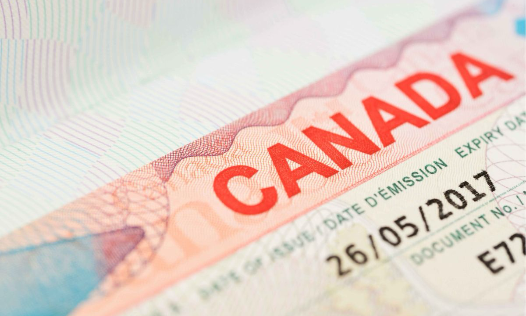Payment is being processed. Please do not refresh or close this page until your payment is complete.
 Book an Appointment
Book an Appointment

Canada is cracking down on immigration, rejecting a record number of visitor, student, and work permit applications in 2024. The government aims to control population growth, manage resources, and prevent visa misuse. Here’s what you need to know about the new policies and their impact.
Canada, a top destination for international students, workers, and visitors, has begun tightening its immigration policies. The Canadian government has introduced several measures aimed at reducing the number of temporary residents entering the country.
According to Immigration, Refugees and Citizenship Canada (IRCC), around 2.36 million temporary resident applications have been rejected in 2024. This move aligns with Canada’s plan to control population growth and ease pressure on housing, infrastructure, and social services.
Former Immigration Minister Marc Miller previously stated that these measures aim to attract the world’s best talent while ensuring they integrate into the economy quickly.
Who Is Affected by Canada’s Visa Rejections?
The visa rejections in 2024 have impacted three major categories:
• Visitor Visas: Canada has rejected 1.95 million visitor visa applications, surpassing the 40% refusal rate recorded in 2023.
• Study Permits: About 290,317 international students faced rejection this year, marking a significant increase from previous years.
• Work Permits: 115,549 work permit applications were denied, reflecting Canada’s effort to regulate temporary employment programs.
Why Is Canada Reducing Temporary Residents?
The Canadian government has outlined a strategy to reduce the number of temporary residents by 2026. Several factors are driving this decision:
1. Population and Resource Management
Canada’s population has surged due to temporary residents, particularly after the COVID-19 pandemic. This increase has placed immense pressure on housing, healthcare, and public services. To address this, the government has tightened immigration policies to stabilize the demand for essential resources.
2. Visitor Visa Overstays
Many applicants have used visitor visas to remain in Canada beyond their authorized stay. As a result, rejection rates have increased, and immigration officers now enforce stricter entry requirements.
3. International Student Program Reforms
The International Student Program has undergone major reforms to curb fraud and improve quality control. IRCC has introduced a cap on international student admissions and implemented stricter verification processes.
Students must now demonstrate financial security through proof of income, and those unable to meet this requirement are being denied study permits.
Additionally, Canada has reported that nearly 50,000 international students were not actively studying, raising concerns about the program’s integrity.
4. Stricter Work Permit Regulations
Although Canada relies on foreign workers to address labour shortages, the government is now prioritizing specific sectors such as healthcare, construction, and tourism. However, even these industries are facing tighter controls on work permits to prevent an oversupply of workers.
Impact on Canada’s Economy
Experts predict that Canada’s visa rejections will have both positive and negative economic effects:
• Housing Market Relief: Reducing temporary residents could ease demand for housing, potentially lowering rental prices in major cities.
• Healthcare System Improvement: A controlled immigration flow could reduce pressure on hospitals and healthcare services, leading to shorter wait times.
• Workforce Challenges: On the other hand, Canada’s ageing population and labour shortages may create economic challenges, especially in sectors that depend on foreign talent.
Conclusion
As Canada continues implementing stricter immigration policies, applicants will face increased scrutiny and tougher approval processes. International students, workers, and visitors should stay informed about policy updates and ensure they meet all requirements before applying.
For those planning to visit or move to Canada, exploring alternative visa options and strengthening their applications with proper documentation can improve their chances of approval.
Source: https://travelobiz.com/canada-visa-rejections-2024-2-36-million-visitor-study-work/